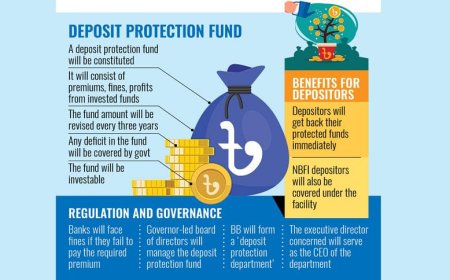Supported by IMF disbursements and strong remittance inflows, Bangladesh’s foreign exchange reserves have risen to $27.3 billion
Previously, on May 27, Bangladesh’s gross foreign exchange reserves were approximately $25.80 billion, with the BPM6-adjusted figure at $20.56 billion.

Bangladesh’s foreign exchange reserves have climbed to \$27.31 billion, buoyed by robust remittance inflows and fresh disbursements from the International Monetary Fund (IMF).
Arif Hossain Khan, Executive Director and spokesperson of Bangladesh Bank, told UNB on Wednesday that the rise was mainly driven by lower import demand and increased foreign aid inflows in recent months.
The latest figure marks a significant uptick from June 23, when the central bank reported gross reserves at \$26.82 billion. On the same date, the IMF's BPM6 standard put the figure at \$21.75 billion.
Earlier, on May 27, gross reserves were about \$25.80 billion, with the BPM6-adjusted level at \$20.56 billion.
Economists note that maintaining reserves equal to at least three months of import payments is crucial for economic stability—a threshold Bangladesh is approaching cautiously.
Foreign exchange reserves are widely regarded as a vital barometer of a country’s overall macroeconomic health.
What's Your Reaction?





















































































